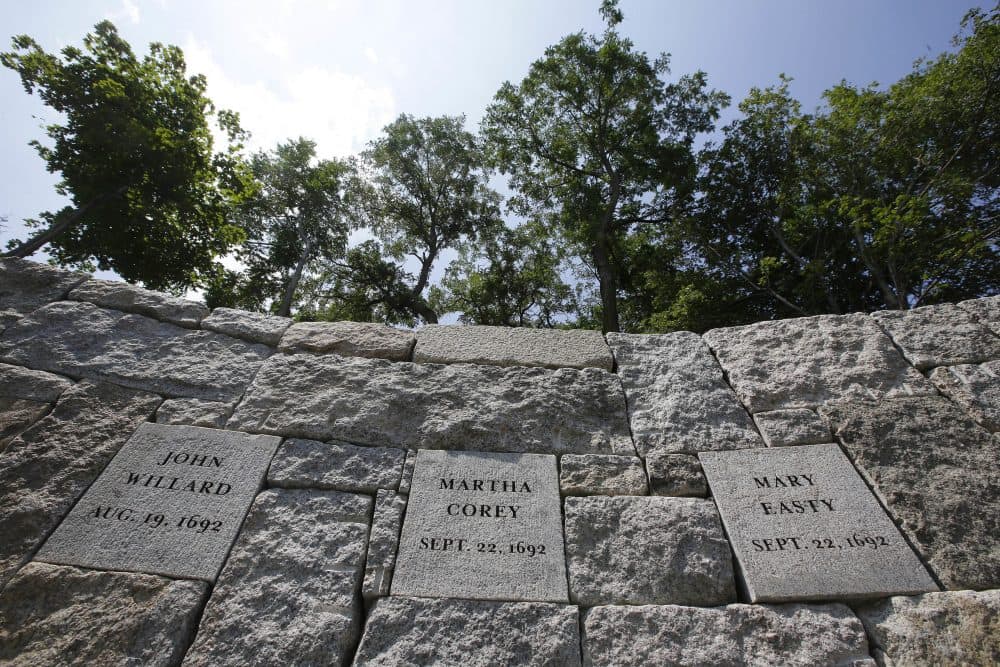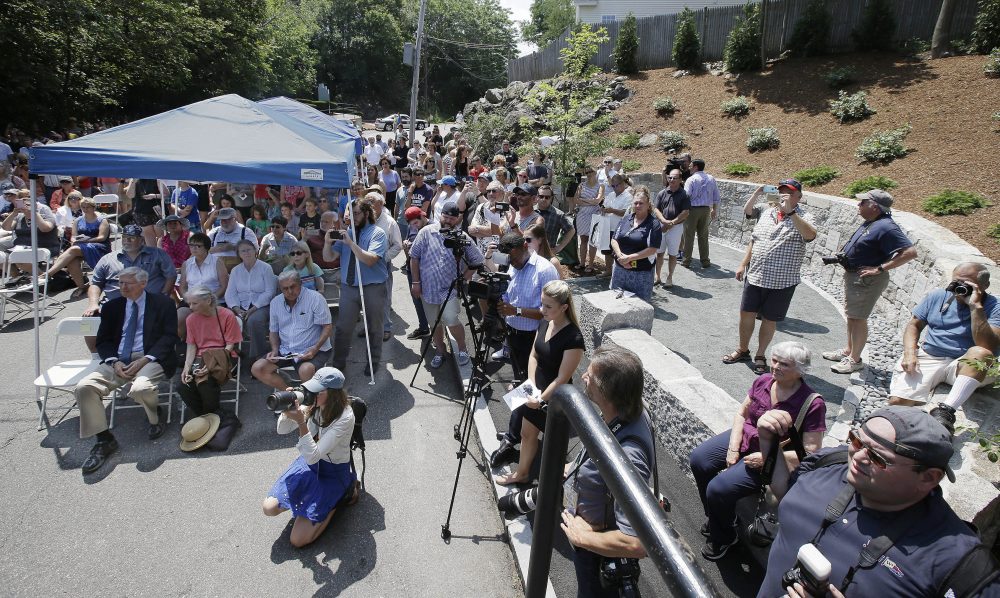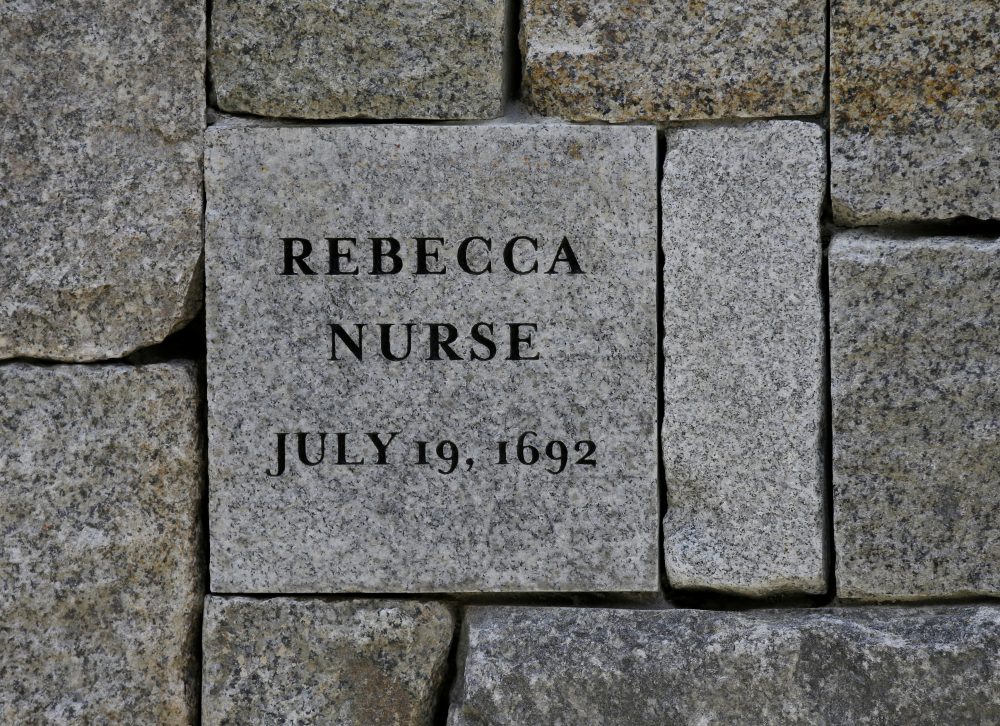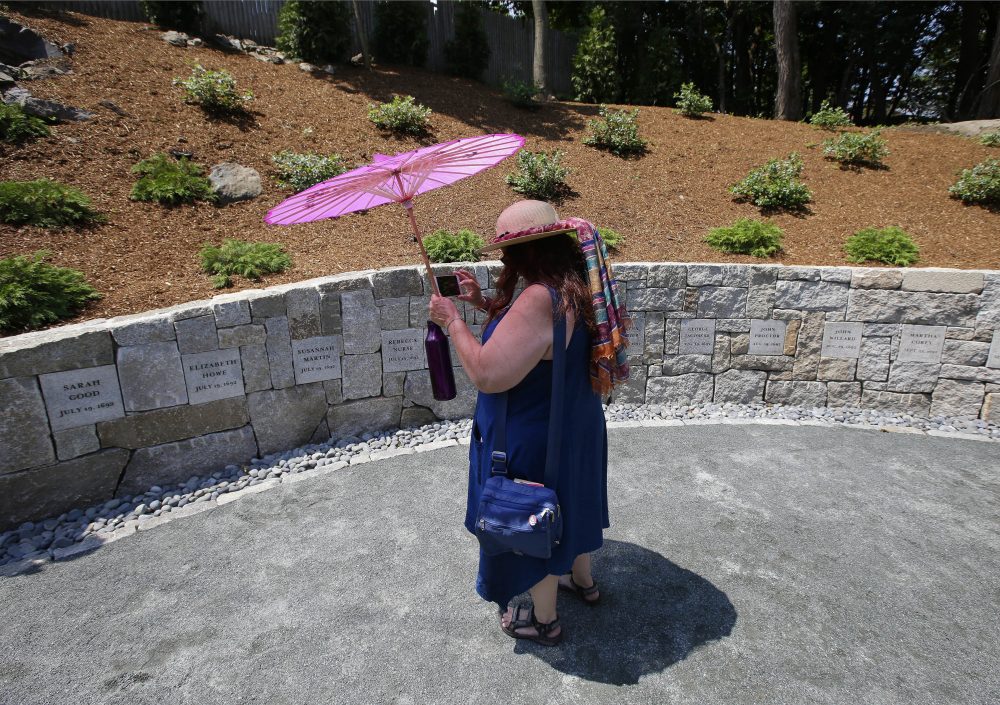Advertisement
New Memorial Remembers Victims Hanged At Proctor's Ledge During Salem Witch Trials

Residents of Salem gathered Wednesday to mark a shameful chapter of American history and remember the 19 men and women who were accused and convicted of being witches in 1692.
The city dedicated a new memorial at Proctor's Ledge, the exact spot where 325 years ago today five women were hanged for witchcraft.

Salem residents and descendants of people put to death gathered in chairs abutting the new memorial for the dedication ceremony. The memorial is a freshly landscaped crescent-shaped plot with plantings, mulch and a swoop of granite wall. Chunky, gray blocks are etched with the names of the victims and the dates they were killed.
The Rev. Jeffrey Barz-Snell, of the First Church in Salem, welcomed the crowd.
"We should not be here today,” he said firmly. "We should not be here dedicating this memorial and setting aside this small patch of rocky earth. We should not be here commemorating the heartbreaking and tragic loss of life, people who were falsely and unjustly accused of being in the snare of the devil.”
Barz-Snell added that in 1692, Rebecca Nurse, who was one of five killed at Proctor’s Ledge on a hot, July afternoon like today, was a member of his congregation. Barz-Snell said his predecessor, the Rev. Nicholas Noyes, helped fan the flames of hysteria that engulfed Salem.
“We would like to think that we've learned from the evil and traumatic choices made 325 years ago. We would like to think we've become better people," Barz-Snell said. "The truth is the lessons of Salem are not just learned once, but must be learned and relearned by each generation.”
Among the descendants was Gail Garda, president of the Towne Family Association and a relative of Rebecca Nurse. Towne was Nurse’s maiden name.
Advertisement

Garda asked the crowd to imagine how hard it was for the settlers who emigrated from England to Massachusetts, searching for a better life and religious freedom.
“Who could've ever imagined amidst all the other fears they were facing at the time — Indian attacks, invasion of the French, health epidemics — that over a brief period of months, from February to September, that these 19 innocent people would be convicted of witchcraft and brought here to Proctor's Ledge to be hanged," she said. "As far as we can tell from all the records, the accused were just ordinary people, no different than any of us here today.”
Others drew parallels to society today, including Salem Mayor Kim Driscoll.
“Proctor’s Ledge is a place, an object, but it is also an idea and it’s also a memory," Driscoll said. "The legacy of what transpired here crosses into the imaginations and consciousness of our community, our commonwealth and even our country.”
City Councillor David Eppley evoked the names of neighborhoods in Salem -- Witchcraft Heights and Gallows Hill -- as he shared how impossible it was to offer apologies to the affected families and descendants.
“The only way I know that Salem and its political leaders can atone for such heinous acts is to continue to serve as a story of warning for the rest of the nation and this world on what could ultimately happen when you turn your neighbor into 'the other.'"

Proctor’s Ledge was identified as an execution site in January 2016 by a team of researchers that included Salem State University professor Emerson "Tad" Baker.
“It’s my sincere hope that today marks a new chapter in how Salem treats the witch trials,” the historian said from the stage. “We became the 'Witch City' in 1892 on the bicentennial of the trials. While done largely for commercial reasons, I see the moniker as Salem’s self-imposed Scarlet Letter. After all, the term ‘witch hunt’ is synonymous with Salem and stands as a symbol of persecution, fanaticism, injustice and rushing to judgement.”
Baker added that with that title comes responsibilities.
“So from this time forward I hope that residents and visitors to Salem will treat the tragic events of 1692 with more of the respect they are due," he said. "We need less celebration in October and more commemoration and sober reflection throughout the year.”
Rev. Barz-Snell concluded the dedication ceremony with a "prayer of committal" — usually evoked at funerals to aid the victims to a peaceful, eternal rest.
The Proctor's Ledge memorial is meant to be a place of quiet reflection. It’s situated in a residential area, just a block from a Walgreens. It isn't the first witch trial memorial in Salem — another was unveiled in 1992 to mark the 300th anniversary of the hangings. Even so, some say this new one has been a long time coming.
Listen to the story here:
